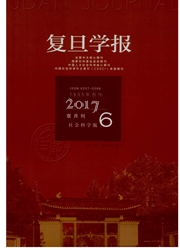

 中文摘要:
中文摘要:
在德国历史学界,"克服历史"指的是处理纳粹历史的一种方法。围绕"克服历史"上的争议在20世纪80年代后日益演变成为一种公共性的历史文化现象。如何认识与评判这些事件及其相关的公共文化特征,业已成为德国公众史学研究的一个热点问题,各种维度的研究实践陆续出现。这些实践特别表现在四个方面:从政治史角度来讨论联邦德国早期历史政策中的回避倾向及其原因;从社会史角度来考察不同时代"克服历史"之争所出现的特征及其根源;以当代史的参与者来书写刚刚过去的"克服历史"之争;综合性与比较性的研究逐渐增多。德国职业历史学家应对"克服历史"之争的态度也从漠视或轻视转变为努力纠偏、尝试理解,并将之视作贴近当下社会心态、反思学界各种问题的契机。在主动编纂相关史料集,并进而把这些争议列入当代史研究对象的同时,德国学界还提出了更多值得讨论和反思的问题:如何平衡历史真实与政治正确之间关系的方法、把历史专业平台与公共交流管道结合在一起的手段、以视觉化方式来弥补历史叙述不足的可能性等。德国历史学界在"克服历史"之争中的态度和新的问题意识,或许为中国公众史学的学科建设展示了特定的理论内涵及其现实意义。
 英文摘要:
英文摘要:
"Struggle to come to terms with the past"is the academic concept to describe one solution of dealing with the history of Nazism. The controversies over "struggle to come to terms with the past"have become one of well-known phenomenon in German public history culture. It has been one focus in the recent public history as discipline in Germany to understand and analyze those controversies and their related characteristics as public history culture. Kinds of practices in different dimensions in this field,such as discussion of history policies in the early FRG from the political history,reflection of the characteristics and reasons of the "struggle to come to terms with the past " in different periods of FRG from the social history; Narratives of new "struggle to come to terms with the past"as the participants; comprehensive and comparative research projects have grown up. The active attitude of some German historians to those controversies and their reflections over the methods and aims of the public history as discipline could probably give Chinese peers some useful references.
 同期刊论文项目
同期刊论文项目
 同项目期刊论文
同项目期刊论文
 期刊信息
期刊信息
